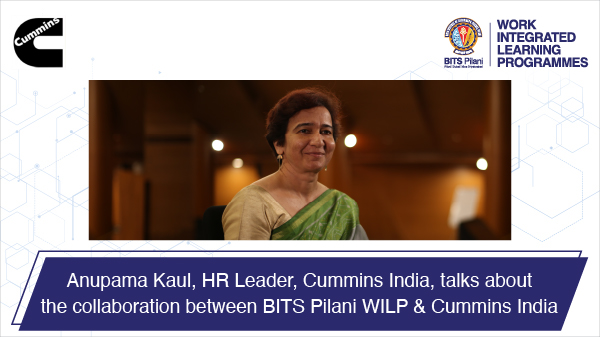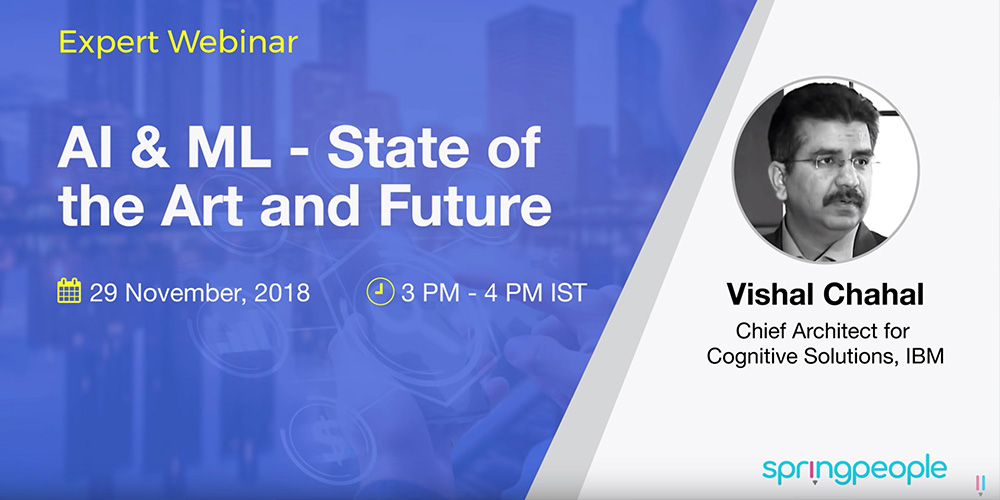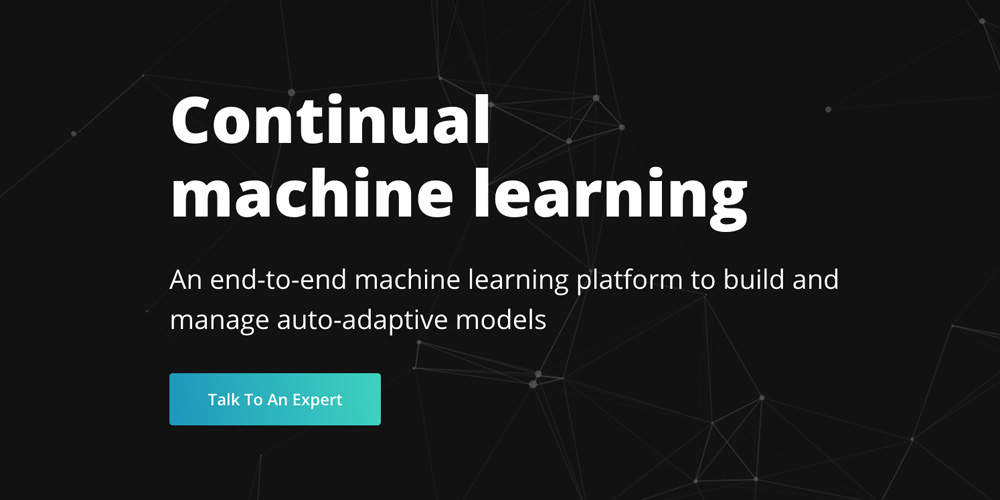B.Tech. Electronics Engineering
With an ever-evolving technological landscape, the field of electronics engineering plays a pivotal role in shaping our world. From designing and developing cutting-edge electronic devices to implementing innovative communication systems, electronics engineers are at the forefront of technological innovation. The seven semester B.Tech. Electronics Engineering programme is Work Integrated Learning Programme for working professionals offers a strong foundation in theoretical knowledge and practical skills through rigorous academic coursework and experiential learning exercises for working professionals.
The program enables working professionals to pursue a variety of career paths in sectors such as telecommunications, semiconductors, aerospace, automotive, defense, and healthcare, along with providing them with the necessary knowledge to pursue higher studies.
B.Tech Electronics Engineering Programme is a BITS Pilani Work Integrated Learning Programme, {WILP} BITS Pilani Work Integrated Learning Programmes are UGC approved.
Option to pay fees using easy EMI with 0% interest and 0 down payment
Programme Highlights
- B.Tech. Electronics Engineering is a BITS Pilani Work Integrated Learning Programme (WILP). BITS Pilani Work Integrated Learning Programmes are UGC approved.
- This programme is of 7 semesters and can be pursued only by working professionals. You can pursue the programme without any career break.
- The programme will also enable working professionals to attend contact classes from anywhere over a technology-enabled platform. The contact classes will be conducted mostly on weekends or after business hours.
- The programme positions the professionals out of narrow technology domains thus enabling them to gain an overall perspective to address the engineering field, which has evolved to be interdisciplinary.
- A blend of foundational sciences, core technologies and execution management develops a rounded professional competence, which is a requirement for strong professional development.
- The Project Work in the final semester enables students to apply concepts and techniques learnt during the programme.
- The programme uses a Continuous Evaluation System that assesses the learners over convenient and regular intervals. Such a system provides timely and frequent feedback and helps busy working professionals stay on course with the programme.
- The education delivery methodology is a blend of classroom and experiential learning. Experiential learning consists of lab exercises, assignments, case studies and work integrated activities.
- Participants who successfully complete the programme will become members of an elite & global community of BITS Pilani Alumni.
- Option to submit fee using easy- EMI with 0% interest and 0 down payment.
UGC Approval
BITS Pilani is an Institution of Eminence under UGC (Institution of Eminence Deemed to be Universities) Regulations, 2017. The Work Integrated Learning Programmes (WILP) of BITS Pilani constitutes a unique set of educational offerings for working professionals. WILP are an extension of programmes offered at the BITS Pilani Campuses and are comparable to our regular programmes both in terms of unit/credit requirements as well as academic rigour. In addition, it capitalises and further builds on practical experience of students through high degree of integration, which results not only in upgradation of knowledge, but also in up skilling, and productivity increase. The programme may lead to award of degree, diploma, and certificate in science, technology/engineering, management, and humanities and social sciences. On the recommendation of the Empowered Expert Committee, UGC in its 548th Meeting held on 11.09.20 has approved the continued offering of BITS Pilani’s Work Integrated Learning programmes.
Programme Curriculum
Participants need to take at least 24 courses towards coursework, and complete one Project/ Dissertation. The coursework requirement for the programme would consist of a set of core courses and electives. Core courses are compulsory for all participants, while electives can be chosen based on individual learning preferences.
- Engineering Mathematics
- Object Oriented Programming
- Engineering Physics
- Elements of Electrical and Electronic Circuits
- Probability Theory and Random Process
- Digital Electronics and Microprocessors
- Principles of Management
- Signals and Systems
- Analog Electronics
- Electromagnetic Theory
- Digital Control Systems
- Communication Systems
- Microwave and Antenna Theory
- Introduction to Digital Signal Processing
- Elective 1
- Elective 2
- Computer Networks
- Elective 3
- Elective 4
- Elective 5
- Elective 6
- Elective 7
- Elective 8
- Elective 9
- Project Work
- Information Theory and Coding#
- Wireless & Mobile Communication#
- Telecommunication Switching Systems and Networks#
- Network Security
- Mobile Telecommunication Networks
- Optical Communication
- Satellite Communication
- Communication & Networking Technologies for IoT
- Introduction to Edge Computing#
- Introduction to IoT#
- Communication & Networking Technologies for IoT#
- Digital Image Processing
- Machine Learning
- Sensor Technologies
- Machine Learning for Edge
- Real-Time Operating Systems
- Computer Architecture
- Embedded System Design#
- Computer Architecture#
- Semiconductor Devices and Technologies#
- Modern Processor Architectures
- SoC Design & EDA
- FPGA-based System Design
- Real-Time Operating Systems
Note
1. Learners can graduate without any concentration or with one concentration, i.e, either in communication technologies or Embedded IoT&Edge or Processor Architectures.
2. # indicates mandatory electives for a concentration. 5 courses are to be chosen from the designated pool of electives for a concentration
Choice of Electives is made available to enrolled students at the beginning of each semester. A limited selection of Electives will be offered at the discretion of the Institute.
Mode of Learning
The Mode of Learning used in this programme is called - Work Integrated Learning. Internationally, Work Integrated Learning (WIL) is defined as "An educational approach involving three parties - the student, educational institution, and employer organization(s) - consisting of authentic work-focused experiences as an intentional component of the curriculum. Students learn through active engagement in purposeful work tasks, which enable the integration of theory with meaningful practice that is relevant to the students' discipline of study and/or professional development*.
An education model can be considered as WIL if and only if:
- The programs are designed and developed by the institute in collaboration with industry.
- Work-focused experiences form an active part of the curriculum.
- The program structure, pedagogy and assessment enable integration of theory-with relevant practice.
The innovative Work Integrated Learning Programs (WILP) of BITS Pilani are quite aligned with the above definition and requirements. The programs are designed in collaboration with its industry partners, subject matter experts from industry and academia that enable the students to remain relevant in their chosen profession, grow in their career and retain the habit of lifelong learning. The continued availability of workplace related experiences along with the weekly instruction sessions promote integration of theory with practice. An active participation of the organization mentor in the learning process of the student plays a key role. Case studies, simulation exercises, labs and projects further strengthen this integration.
The WILP of BITS Pilani is comparable to its campus-based programs in terms of structure, rigor, instruction, labs, assessment, faculty profile and learning support. The pervasive adoption of technology in all its academic processes makes the same high-quality education of BITS Pilani available to the aspirants at scale with the required flexibility.
Key Benefits of BITS Pilani WILP
1) Can pursue the programme without any career break and along with the job.
2) The programme curriculum is highly relevant to sectors, industries and organisations they work for
3) In addition to the institute, the learning experience of working professionals in the programme is also supported by the employer organisation and Industry Mentors.
4) Effective use of technology to deliver a range of learning interventions at the location of the working professional such as faculty contact sessions, asynchronous learning materials, remote, virtual and cloud labs, Learner support, peer to peer collaboration etc.
5) Contact sessions with faculty take place mostly over weekends or after business hours and are conducted over a technology platform that can be accessed from anywhere.
6) Mid semester and End semester examinations for every semester are conducted mostly at designated examination centres distributed across the country (for details refer to link mode of examinations)
7) Learners can access engaging learning material which includes recorded lectures from BITS Pilani faculty members, course handouts and recorded lab content where applicable.
EXPERIENTIAL LEARNING
The programme emphasises on Experiential Learning that allows learners to apply concepts learnt in the classroom in simulated, and real work situations.
- Simulation Tools, Platforms & Environments: Some or all of the following would be utilised across the programme.
- Simulation environments for Circuits such as LabView & MultiSim
- Modelling & Analysis using PTC Creo & MATLAB
- Thermal Engineering concepts using Flownex Simulation tool and Fluid Mechanics Remote Labs
- Manufacturing process simulation using Afdex & Zcastpro
- Manufacturing management using FlexSim
CONTINUOUS ASSESSMENT
Continuous Assessment includes graded Assignments/ Quizzes, Mid-semester exam, and Comprehensive Exam.
CASE STUDIES AND ASSIGNMENTS
Carefully chosen real-world cases & assignments are both discussed and used as problem-solving exercises during the programme.
DISSERTATION/ PROJECT WORK
The seventh semester offers an opportunity for learners to apply their knowledge gained during the programme to a real-world like complex project. The learner is expected to demonstrate understanding of vital principles learnt across semesters and their ability to successfully apply these concepts.
Remote/Virtual Lab
Virtual tools such as Multisim, MATLAB, Keil C, CPU OS Simulator, Numerical Python, GNU Radio, Kicad, CISCO packet tracer, NS2 simulator, and AWS cloud are used for experiential learning. These tools will be used to perform hands-on practical exercises.
LEARNING OUTCOMES:
- Given the technical specification, learners will be able to design, analyze and validate the concept.
- Apply the gained knowledge in solving real-time problems in the industry.
MULTISIM VIRTUAL LAB
- Model, simulate and test electronic and digital circuits.
- Interactive schematic environment for industry-standard SPICE simulation.
KICAD VIRTUAL LAB
- Software suite for EDA.
- Capture schematic and generate PCB layout. Manufacturing file viewing
MATLAB/SIMULINK VIRTUAL LAB
- Programming and numerical computing platform to develop algorithms and create models.
- Design and validate signal processing algorithms and communication technologies.
CISCO PACKET TRACER
- Network Simulation and Visualization tool
- Create network topologies and configure routers and switches using CLI.
Mode Of Examination
Mode of Examinations applicable for students admitted in Batch starting in July 2024:
Semester 1, 2, 3, 4, 5 & 6 have Mid-semester Examinations and Comprehensive Examinations for each of course. These examinations are mostly scheduled on Friday, Saturday or Sunday. Students need to appear in person for taking the examinations at the institution’s designated examination centres as per the examination schedule, Instructions, rules and guidelines announced before every examination.
Students can take their examination at any of our 23 designated examination centres in India at the following locations:
South Zone: Bangalore, Chennai, Hyderabad, Vijayawada, Visakhapatnam, Kochi, Thiruvananthapuram and Coimbatore.
North Zone: Delhi NCR, Jaipur, Chandigarh, Lucknow and Pilani.
West Zone: Mumbai, Pune, Goa, Ahmedabad, Indore and Nagpur.
East Zone: Kolkata, Bhubaneshwar, Guwahati and Jamshedpur.
In addition to these locations, the Institution also has a designated examination centre in Dubai.
During these semesters, in addition to the above mentioned Mid-Semester and Comprehensive examinations, there will also be Quizzes/Assignments conducted online on the Learning Management System (LMS) as per the course plan in which the students need to participate.
In Semester 7 (Final Semester), the student will be doing Dissertation/Project Work as per the Institution’s guidelines.
Eligibility Criteria
The programme is designed for:
- Professionals with Diploma in Electronics and Communication Engineering or in relevant Electronics domain specialization, with a minimum of one-year work experience.
- Professionals working in industries such as Telecommunications, semiconductor, Microwave & RF, IoT & Embedded and allied domains.
- Professional aspiring to gain expertise in communication technologies, Embedded IoT & Edge and processor architecture.
Fee Structure
The following fees schedule is applicable for candidates seeking new admission during the academic year 2024-2025.
- Application Fees (one time) : INR 1,500
- Admission Fees (one time) : INR 16,500
- Semester Fees (per semester) : INR 66,750
The one-time Application Fee is to be paid at the time of submitting the Application Form through the Online Application Centre.
Admission Fee (one-time) and Semester Fee (for the First Semester) are to be paid together once admission is offered to the candidate. Thus, a candidate who has been offered admission will have to pay INR 83,250/-. You may choose to make the payment using Netbanking/ Debit Card/ Credit Card through the Online Application Centre. Option to submit fee using easy-EMI with 0% interest and 0 down payment. Click here to learn more.
Semester Fee for subsequent semesters will only be payable later, i.e. at the beginning of those respective semesters.
Any candidate who desires to discontinue from the programme after confirmation of admission & registration for the courses specified in the admit offer letter will forfeit the total amount of fees paid.
For the examination centre at Dubai, in addition to the semester fees, for each semester there will be an examination centre fees of 1000 UAE Dirhams or equivalent per semester out of which 500 UAE Dirhams is to be paid at the time of appearing in Mid-semester examinations at Dubai Centre for that semester and the remaining 500 UAE Dirhams is to be paid at the time of appearing in comprehensive examinations at Dubai centre for that semester.
All the above fees are non-refundable.
Important: For every course in the program institute will recommend textbooks, students would need to procure these textbooks on their own.
How to Apply
- Once you have logged in, you will see a screen showing 4 essential steps to be completed to apply for the programme of your choice.
- Begin by clicking on Step 1 - ‘Fill/ Edit and Submit Application Form’. This will enable you to select the programme of your choice. After you have chosen your programme, you will be asked to fill your details in an online form. You must fill all the details and press ‘Submit’ button given at the bottom of the form.
- Take the next step by clicking on Step 2 - 'Download Application PDF Copy’. This will download a pdf copy of the application form on your computer.
- Now, click on Step 3 - 'Pay Application Fee’ to pay INR 1,500/- using Netbanking/ Debit Card/ Credit Card.
- Take a printout of the downloaded Application Form and note down the Application Form Number displayed on the top-right corner of the first page. This Application Form Number should be referred in all future correspondence with BITS Pilani.
-
In the printout of the downloaded Application Form, you will notice on page no. 3 a section called the Employer Consent Form. Complete the Employer Consent Form. This form needs to be signed and stamped by your organisation’s HR or any other authorised signatory of the company.
Important: In view of work-from-home policies mandated by many organisations, a few candidates may not be able to get the physical forms signed by their HR/ other authorised organisational representative. Such candidates may instead request an email approval to be sent to their official email ID by the HR using the format available through this link.
-
Further on page no. 4 of the printed Application Form is a section called the Mentor Consent Form. The Mentor Consent Form needs to be signed by the Mentor. Click here to know who could be a Mentor.
Important: In view of work-from-home policies mandated by many organisations, a few candidates may not be able to get the physical forms signed by their Mentor. Such candidates may instead request an email approval to be sent to their official email ID by the Mentor using the format available through this link.
- Further on page no. 5 of the downloaded Application Form, is a Checklist of Enclosures/ Attachments.
- Make photocopies of the documents mentioned in this Checklist.
- Applicants are required to self-attest all academic mark sheets and certificates.
- Finally, click on Step 4 - 'Upload & Submit All Required Documents’. This will allow you to upload one-by-one the printed Application Form, Mentor Consent Form, Employer Consent Form, and all mandatory supporting documents and complete the application process. Acceptable file formats for uploading these documents are DOC, DOCX, PDF, ZIP and JPEG.
- Upon receipt of your Application Form and all other enclosures, the Admissions Cell will scrutinise them for completeness, accuracy and eligibility.
- Admission Cell will intimate selected candidates by email within two weeks of submission of application with all supporting documents. The selection status can also be checked by logging in to the Online Application Centre.
Batch Profile
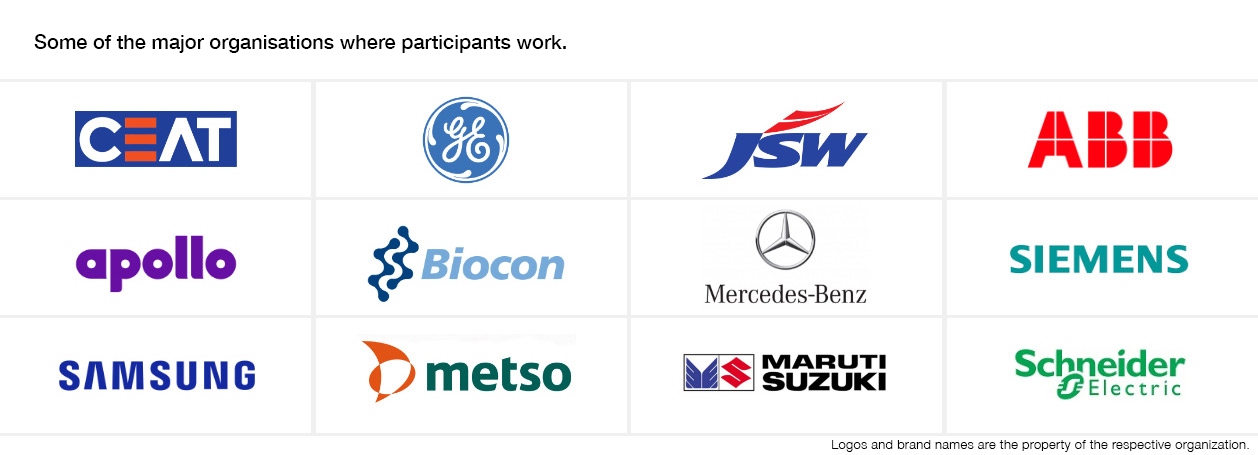
Featured Faculty
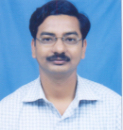
Prof. Ravi Reosekar

Prof. K. Gopala Krishna

Prof. Sandeep Kayastha

Prof. Satya Sudhakar Yedlapalli

Dr. Naga Vamsi Krishna Jasti
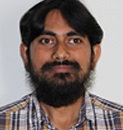
Prof. Srinivas Kota
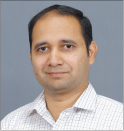
Prof. Manoj Kakade

Prof. Pavan Kumar Potdar
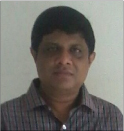
Dr. Arun Maity

Prof. Shashank Tiwari
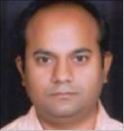
Dr. Samir Kale

Dr. Anjani Srikanth Koka
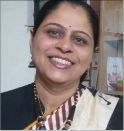
Prof. Samata Mujumdar
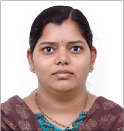
Prof. Swapna Kulkarni
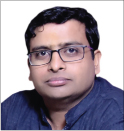
Prof. Ankur Pachauri
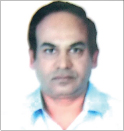
Prof. M K Hamirwasia
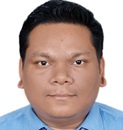
Dr. Sudeep Kumar Pradhan
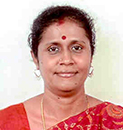
Dr. Annapoorna Gopal
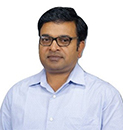
Prof. Pawan Sharma
.png)
Prof. Anil Jindal
FAQs
B.Tech. Electronics Engineering is a BITS Pilani Work Integrated Learning Programme (WILP). BITS Pilani Work Integrated Learning Programmes are UGC approved.
This programme is designed for working professionals. At the time of submitting the application, candidates must be employed in another organization. Professionals who are owners of a registered business are also eligible to apply.
For detailed information, including academic background, work experience, etc. refer to the programme eligibility criteria.
Upon successful completion of the programme, participants will receive a degree certificate from BITS Pilani.
Each semester has a Mid-semester Exam and a Comprehensive Exam for each course, which are conducted over weekends. Students will need to appear in-person to take these exams at exams centers in the following locations:
India Centers:
South Zone: Bangalore, Chennai, Hyderabad, Vijayawada, Visakhapatnam, Kochi, Thiruvananthapuram and Coimbatore.
North Zone: Delhi NCR, Jaipur, Chandigadh, Lucknow and Pilani.
West Zone: Mumbai, Pune, Goa, Ahmedabad, Indore and Nagpur.
East Zone: Kolkata, Bhubaneshwar, Guwahati and Jamshedpur.
International Centers: Dubai
In case students are unable to take an exam due to work-related commitments, there is also a provision of appearing for Make-up Exams..
The programme features high usage of experiential learn components such as Simulations, Virtual Labs, and Remote Labs, in order to mimic the on-campus experience.
Participants will be given access to portals, that will allow them to access both cloud-based labs, as well as Campus-based physical labs. Using leading industry-recognised Software tools, Programming languages, and Simulation software, participants will be able to perform experiments and run simulations to advance their knowledge
Candidates applying to the programmes must choose a Mentor, who will monitor the academic progress of the candidate, and act as an advisor & coach for successful completion of the programme. Candidates should ideally choose the immediate supervisor or another senior person from the same organisation. In case a suitable mentor is not available in the same organisation, a candidate could approach a senior person in another organisation who has the required qualifications. For detailed information, please refer to the programme brochure.
Kindly note that BITS Pilani does not assign Mentors to programme participants.
The programme is designed for working professionals, and participants are not required to travel to a BITS campus. However, certain programme offer Campus Immersion Modules such as workshops or seminars, which are highly recommended but not mandatory.
.png)
.png)
.png)
.png)
.png)
.png)
.png)
.png)
.png)
.png)
.png)
